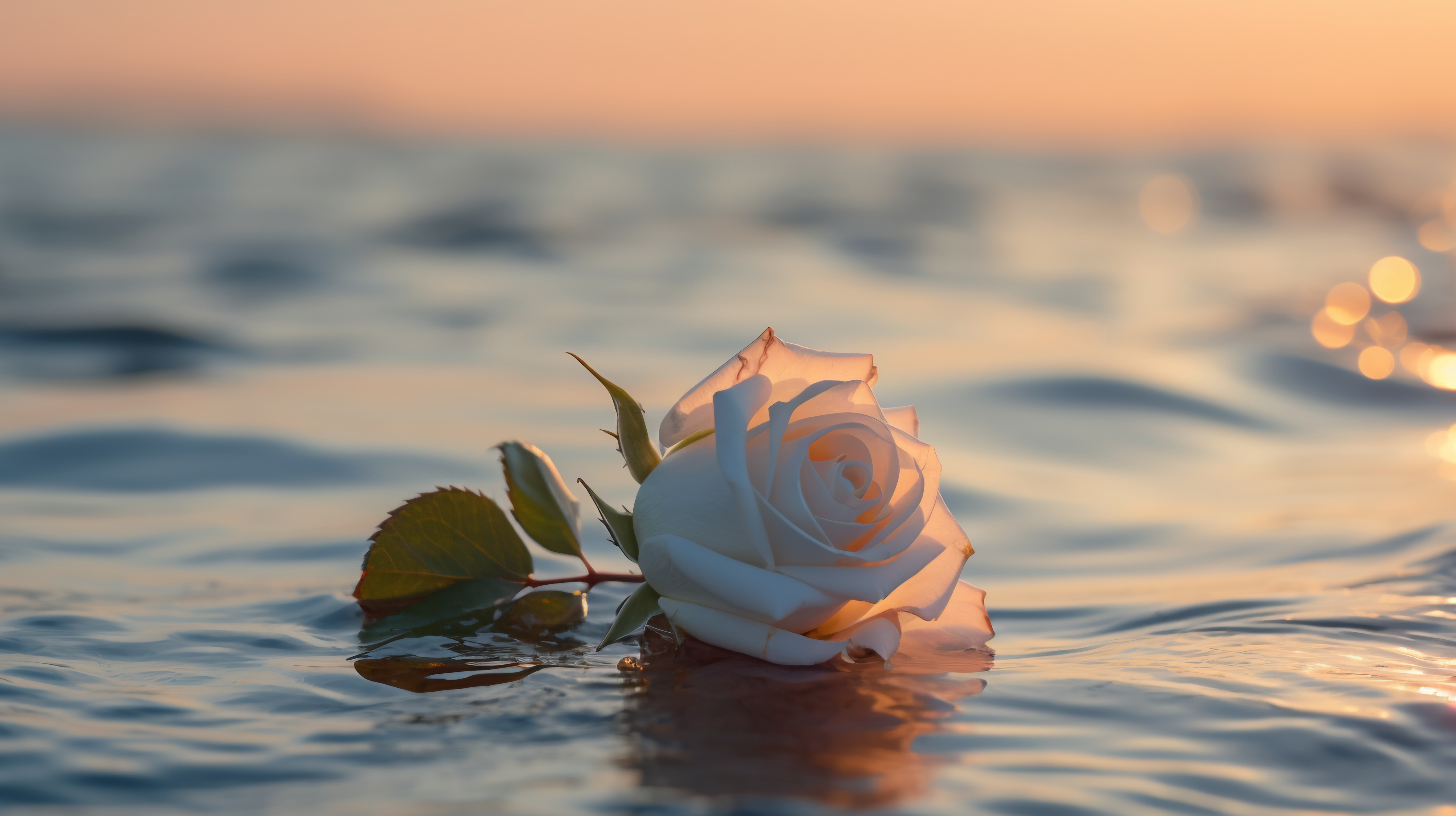Blog » Alkaline Hydrolysis and Green Burial Alternatives Explained

As people become more aware of their environmental impact, the demand for sustainable end-of-life practices continues to grow. Families are now opting for greener burial methods to reduce their carbon footprint. Two popular options are alkaline hydrolysis and green burial alternatives. Alkaline hydrolysis and green burial alternatives explained, highlighting their unique processes and eco-friendly benefits, help families make choices that reflect both their personal and environmental values.
What is Alkaline Hydrolysis?
Alkaline hydrolysis, also known as water cremation or resomation, is a modern, eco-friendly alternative to traditional cremation. Instead of using intense heat and fossil fuels, this method relies on water, alkaline chemicals, and heat to accelerate the body’s decomposition. It's a gentler, more sustainable process that significantly reduces environmental harm.
In this method, the body is placed in a steel chamber filled with water and potassium hydroxide. When heated to around 350°F, the water and chemical combination breaks down the body's tissues into a sterile liquid and bones. The bones are then processed into ash, similar to traditional cremation.
- No harmful emissions.
- Uses 90% less energy compared to traditional cremation.
- Produces sterile by-products safe for disposal.
- Allows families to receive ashes for memorialization.
How Alkaline Hydrolysis Works
The process mimics natural decomposition, but at a much faster rate. This is how alkaline hydrolysis works:
- Preparation: The body is placed in a specialized chamber designed to withstand high pressure and temperature.
- Chemical Reaction: Water and potassium hydroxide fill the chamber, which is heated to between 300°F and 350°F. The pressure prevents boiling.
- Decomposition: Over four to six hours, tissues decompose, leaving behind only a sterile liquid and bone fragments.
- Liquid Disposal: The liquid, now harmless, is filtered and returned to the water cycle.
- Ash Collection: Bones are dried, processed into a fine powder, and returned to the family.
This procedure offers a more environmentally friendly option, producing fewer emissions and using less energy than traditional cremation.
Environmental Benefits of Alkaline Hydrolysis
Alkaline hydrolysis is attractive due to its lower environmental impact. Traditional cremation releases harmful gases such as carbon dioxide and mercury. By contrast, alkaline hydrolysis generates no harmful emissions and requires much less energy.
- No Emissions: No burning means no carbon dioxide or mercury released into the air.
- Energy-Efficient: It uses only a fraction of the energy required for traditional cremation.
- Safe By-Products: The liquid produced is sterile and free of toxins, making it safe for disposal.
- Minimal Water Use: While water is part of the process, it consumes less than maintaining a cemetery plot annually.
Choosing this option can significantly reduce a family’s environmental footprint, making it ideal for those committed to sustainability.
Understanding Green Burial
Green burial focuses on returning the body to the earth as naturally as possible. It eliminates the use of embalming fluids, metal caskets, or concrete vaults, allowing for a simple and sustainable burial. The goal is to let the body decompose naturally and nourish the surrounding environment.
The body is wrapped in a biodegradable shroud or placed in a simple wooden or wicker casket. Green burial sites are often part of conservation areas, where the landscape remains natural and undisturbed.
- No embalming chemicals are introduced to the environment.
- Biodegradable caskets or shrouds are used.
- Burial sites support local ecosystems and wildlife.
- The body’s natural decomposition enriches the soil.
This method allows individuals to have a final resting place that contributes positively to the planet.
The Process of Green Burial
Green burials focus on simplicity and natural decomposition. Here's how they work:
- Natural Preservation: Refrigeration or dry ice is used to preserve the body instead of chemical embalming.
- Biodegradable Caskets: The body is placed in a biodegradable container, such as a wooden casket or shroud.
- Shallow Burial: The body is buried at a shallow depth, encouraging faster decomposition.
- Unmarked Graves: The grave-site often remains unmarked or is identified with a natural marker, like a tree or rock.
- Environmental Impact: Green cemeteries support local wildlife and plant growth, leaving minimal human disturbance.
This approach offers a way to return the body to the earth without disturbing the environment, making it an appealing choice for many families.
Why Choose a Green Burial?
Green burials provide several key benefits beyond their environmental advantages. They also offer a personal and meaningful way for families to say goodbye. Some reasons people opt for green burials include:
- Minimal Environmental Harm: No embalming, concrete vaults, or metal caskets reduce the ecological footprint.
- Cost-Effective: Fewer services and materials mean lower costs than traditional burials.
- Personal Involvement: Families often take an active role in the burial process, which can offer emotional comfort.
- Natural Legacy: Green burials allow individuals to return to the earth in the most natural way possible.
By choosing this method, families can honor their loved ones while also protecting the environment.
Comparison: Alkaline Hydrolysis vs Green Burial
Both alkaline hydrolysis and green burials provide sustainable alternatives to traditional methods. However, they differ in several key areas:
- Decomposition Process: Alkaline hydrolysis speeds up decomposition with chemicals and heat, while green burials rely on natural processes.
- Memorialization: With alkaline hydrolysis, families receive ashes, whereas green burials leave no remains to collect.
- Environmental Impact: Both have a minimal environmental impact, but green burials involve less processing.
- Cost Considerations: Green burials are often less expensive due to the lack of embalming and casket costs. Alkaline hydrolysis, on the other hand, requires specialized equipment and facilities.
Both options appeal to those seeking an eco-friendly burial, but the choice depends on personal preferences and beliefs.
Laws and Regulations Around Green Burials and Alkaline Hydrolysis
It’s essential to know the legal requirements for both methods, as laws vary by state. Alkaline hydrolysis is legal in more than 20 states, but some states are still reviewing its legality. Green burials, on the other hand, are legal across all 50 states but may be subject to local regulations about burial depth and cemetery location.
- Alkaline Hydrolysis: Some states require special facilities to conduct this process, limiting availability.
- Green Burials: While allowed nationwide, specific regulations about burial sites and depths may apply.
Consult with providers like Simple Cremation USA to determine which options are available in your area and comply with local regulations.
How Simple Cremation USA Offers Sustainable Burial Solutions
At Simple Cremation USA, we are dedicated to providing environmentally responsible burial options. Whether families choose alkaline hydrolysis or green burial, we help guide them through each step of the process. Our goal is to make these options accessible to everyone, so they can honor their loved ones in a way that aligns with their environmental values.
We offer both water cremation and green burial services, ensuring families can select the option that best fits their needs. No matter which method is chosen, our team is here to support you with care and professionalism.
Recent Blog Posts
- The Heart Behind Every Word: Why Our Families’ Stories Mean So Much
- Affordable Cremation, Meaningful Goodbyes: How to Honor Life Without Financial Strain
- More Than Mourning: A Tribute to a Life Well Lived
- Go figure! Instagram and Facebook for Cremation Services
- The History of Cremation: From Ancient Rituals to Modern Choices
- What to Do When a Loved One Passes Away at Home
- Ashes in Pop Culture: How Cremation is Portrayed in Movies & TV
- Healing Through Green: How Plants Support Mental Health and the Grieving Process
- Eco-Friendly Cremation and Burial Options
- Direct Cremation in South Carolina and Why Families Prefer This Option
